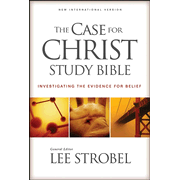"Then they cried to the LORD in their trouble, and he saved them from their distress." Psalm 107:13 (NIV) Feeling trapped, with no way out, is a horrible place to be. I know. I've been there several times in the past few years. When the housing market crashed in my hometown, our family-owned consulting firm almost crashed along with it. Contracts were canceled, potential jobs shriveled, credit maxed and investments bombed. Most of the trouble was out of our control, but some was from our unwise decisions. One month dragged into another. Some weeks we barely squeaked by. I didn't lose my faith in God's provision, as He took care of our basic needs. But His timing to pull us out of the depths of our trouble was not mine. I cried out for a quick fix; He had another plan. Before help came, God let us sit in the mess for a long time. In fact, we had to sit in a place of helplessness for longer than we wanted. All of our previous abilities to help ourselves were gone. Places that had previously been willing to extend a helping hand weren't able to help. At times it felt like we had been abandoned. Was it because of something we had done? Maybe our unwise choices? Questions abounded. But then God stepped in. And because we'd been sitting in that mess so long, our gratitude doubled. We clearly saw His hand at work. In hindsight, if we'd been able to help ourselves, we would have patted ourselves on the backs at our cleverness. Now, God gets all the glory. You may be trapped right now and wondering if God will rescue you. Maybe you've made bad choices. Perhaps you have disqualified yourself from being saved. If that's you, then I've got good news. No matter if your situation is of your own making or someone else's, God cares and has a plan to save you. Psalm 107 sings this truth. In this amazing passage we learn of God's faithfulness to people in all kinds of difficult places: deserts, darkness and the foolishness of their deeds. Yet no matter where they were or what they had done, when they cried to God, He heard them. And He hears us today. This Psalm isn't just literature. It's a message from the faithful of old, to the faithful of today. It was captured in writing so that when we feel lost, trapped, overwhelmed and afraid, we would read it and believe ... believe that the God who brought deliverance then, will do so today. Here's just a portion of that scripture. When you have time, please read the entire passage. Psalm 107:10-13(NIV): Some sat in darkness, in utter darkness, prisoners suffering in iron chains, because they rebelled against God's commands and despised the plans of the Most High. So he subjected them to bitter labor; they stumbled, and there was no one to help. Then they cried to the LORD in their trouble, and he saved them from their distress. God specializes in rescuing the trapped - no matter how they got there. He did it for me and He will do it for you. Dear Lord, You alone know the fullness of my desperate situation. You know how trapped I feel right now. I haven't done everything perfectly, and I confess my rebellious ways. Lord, You said if we called out to You in our distress, You would answer. So I'm calling out now. Please help. In Jesus' Name, Amen. Related Resources:
Visit Glynnis' blog for encouragement in tough situations, and how Glynnis has learned to pray differently because of those difficult times. If you need some practical help in bringing order to your life, consider I Used to Be So Organized by Glynnis Whitwer. Work@Home: A Practical Guide for Women Who Want to Work from Home by Glynnis Whitwer When you purchase resources through Proverbs 31 Ministries, your purchase supports the many areas of hope-giving ministry we provide at no cost. We can't compete with prices offered by huge online warehouses, therefore, we are extremely grateful for each and every purchase you make with us. Thank you! Application Steps:
If you are in a desperate situation right now, first make sure everything is right between you and God. Humbly confess any wrong thoughts, words or deeds. Then pray and ask God for help. Reflections:
Has God ever let me sit in a difficult place for longer than I wanted to sit? What did I learn during that time? Why is our humility an important component to God's rescue of us? Power Verses:
Psalm 107 © 2011 by Glynnis Whitwer. All rights reserved. Proverbs 31 Ministries
616-G Matthews-Mint Hill Road
Matthews, NC 28105
www.Proverbs31.org | 













No comments:
Post a Comment